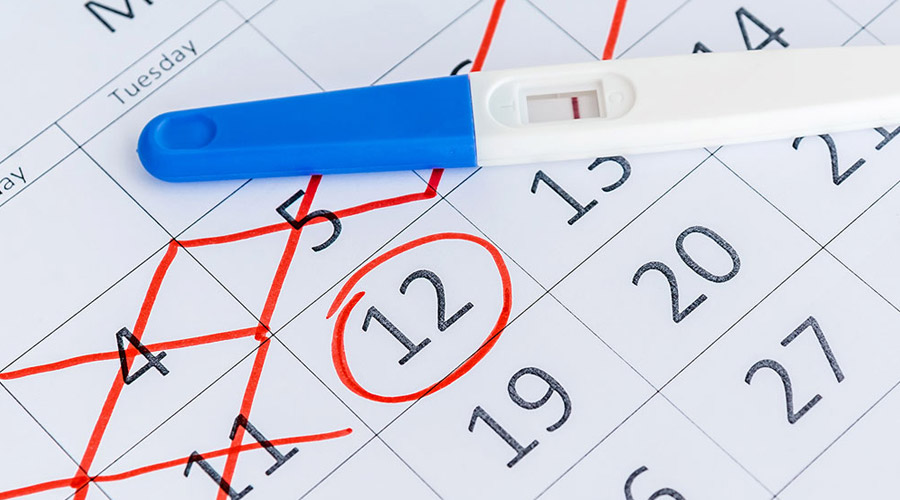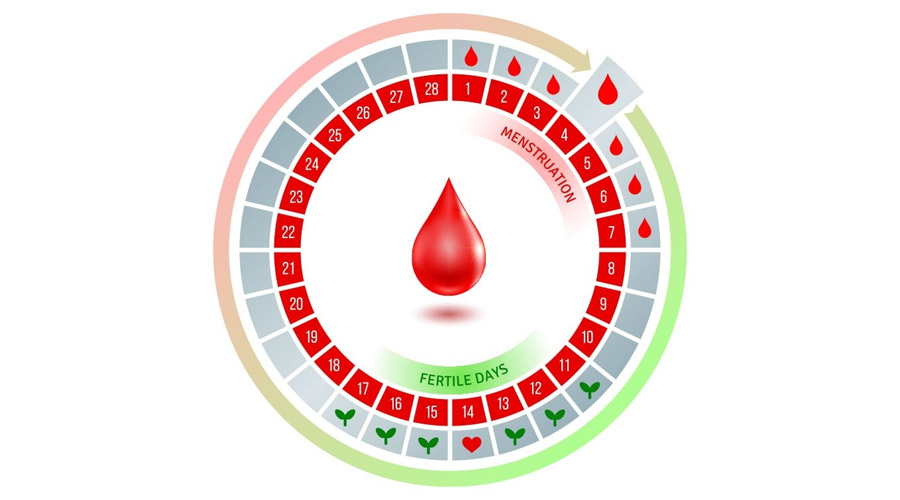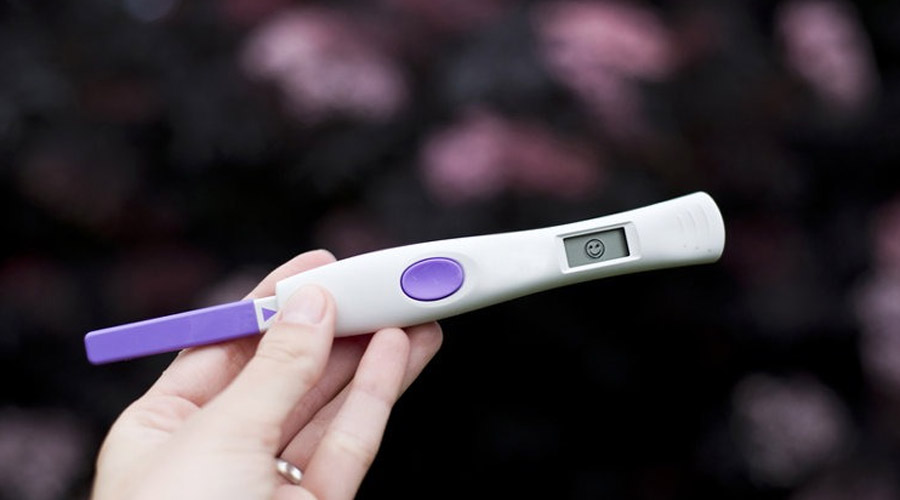There is no single answer to this question since different women respond differently to fertility treatments.
However, many experts believe that there is a best time to get pregnant based on your age, health, and lifestyle. If you are over 30 years old, it may be harder to conceive.
If you have a history of medical problems or are overweight, you may want to consider waiting until these problems are resolved.
Additionally, if you work long hours or travel often, timing your pregnancy can be tricky.
Table of Contents
What days can you get pregnant?

There are only six days each month when a woman can get pregnant. This is because sperm can live inside a woman’s body for up to five days, and the ovary releases an egg about 24 hours after the egg and sperm meet. That means that there are only six days during the month when conception is possible.
Ovulation and conception

Ovulation and conception are two important aspects of becoming pregnant. For ovulation to occur, the hypothalamus in the brain must release gonadotropin-releasing hormone (GnRH).
Ovulation
This hormone signals the pituitary gland to release follicle-stimulating hormone (FSH) and luteinizing hormone (LH). FSH helps prepare an egg for ovulation, and LH causes the egg to be released from the ovary.
Conception
Conception occurs when a sperm enters and fertilizes an egg. Sperm can survive inside a woman’s body for up to five days, so there is a window of time each month when intercourse can result in pregnancy.
A woman is most likely to conceive if she has sex on the day of ovulation or the day before.
Signs of ovulation

Ovulation is the process of the ovary releasing an egg. For women trying to conceive, it is important to know when ovulation occurs. There are several signs that can indicate ovulation.
Cervical Mucus
One sign of ovulation is a change in cervical mucus. Before ovulation, the mucus is thick and sticky.
After ovulation, the mucus becomes thin and slippery. This makes it easier for sperm to swim to the egg.
Basal Body Temperature
Another sign of ovulation is a change in basal body temperature (BBT). BBT is your body’s temperature when you’re completely at rest.
Your body’s temperature will rise slightly after ovulation has occurred. This increase in temperature can be detected with a basal body thermometer.
Physical Appearance
The third sign of ovulation is a change in your physical appearance.
Calculating ovulation
Ovulation is a process that happens in a woman’s body when an egg is released from one of her ovaries.
This happens about two weeks before the start of a woman’s period. To calculate when ovulation will happen, you need to know your average cycle length.
To figure out the length of your cycle, start by counting the number of days from the start of one period to the start of the next period.
The average menstrual cycle is 28 days long, but it can be shorter or longer than that.
After you have counted the number of days in your cycle, subtract 14 from that number to get the approximate day you will ovulate.
For example, if your average menstrual cycle is 30 days long, then you will ovulate on day 16 (30-14=16). This way, you can plan and prepare for reproductive medicine if needed.
Using an ovulation test

It can be difficult to determine when you are ovulating, but using an ovulation test can help make it easier.
Ovulation tests work by detecting the surge in luteinizing hormone (LH) that happens before ovulation. This means that you can use the test to find out when you are most likely to conceive.
Ovulation tests are available over the counter and can be used at home. You will need to collect a urine sample and then dip the test strip into the sample. The test will show a positive result if LH is present.
You can use the results of the ovulation test to help you plan intercourse around your most fertile time. The female reproductive tract can be confusing, but tracking down your menstrual cycles can greatly help.
If you have regular menstrual period, you can typically expect to ovulate 14 days before your next period starts. It’s also important to take note on women’s health to ensure that there will be a fertilized egg.
What can affect male fertility?
There are many things that can affect male fertility. Some of these are environmental, such as exposure to lead or pesticides.
Others are lifestyle choices, like smoking or drinking alcohol. Infections, including sexually transmitted infections (STIs), can also affect fertility. Finally, some medical conditions can cause infertility in men.
How does fertility differ with the pill?
There are a lot of myths about the pill and fertility. Some people think that because you’re on the pill, you can’t get pregnant.
Others think that you can’t get pregnant if you’re on the pill, but you also can’t have an orgasm. The truth is, all of those things are myths.
The truth is that fertility rates are slightly different when you’re on the pill. If you have irregular cycles, your ovulation typically occurs at different times, therefore you’ll need to take pills to regulate your cycle to the days leading to ovulation.
For example, if you’re taking the pill correctly-meaning that you’re taking it at the same time every day and not missing any pills-your fertility rate drops by only 0.3%.
That’s a small number, and it means that if 100 women take the pill correctly for a year, only three of them will get pregnant.
However, if you miss pills or take them at different times than prescribed, your fertility rate goes up significantly.
When to see a doctor?
When it comes to our health, many of us would rather not deal with doctors unless it is absolutely necessary.
We may feel like we are bothering the doctor or that they are too busy to see us. But, if the fallopian tube has problems or if you have vaginal secretions, then you’ll need a fertility monitor with the help of your doctor.
However, it is important to remember that doctors are there to help us and that most of them do not mind seeing patients who have minor problems like menstrual period or cervical mucus.
There are a few key times when you should definitely see a doctor. If you have a fever for more than three days, if you have chest pain, or if you are having trouble breathing, it is time to go see a doctor.
You should also go see a doctor if you have been injured and are not sure how bad the injury is. If you are pregnant, it is important to go see a doctor regularly, even if you are feeling fine.
Inference
In conclusion, there is no one perfect time to get pregnant. However, talking to a doctor can help couples figure out the best time for them to conceive.
There are many things to consider when trying to get pregnant, like age, health, and lifestyle.
Ultimately, it is important to be aware of all the factors involved in getting pregnant and make the best decision for you and your family.
FAQ
What is the best day to get pregnant after your period?
Every woman’s body is different and there is no exact science to predicting when the best day to get pregnant after your period is.
However, there are a few things you can do to increase your chances of getting pregnant.
First, track your menstrual cycle and ovulation using an app or fertility chart. This will help you to better understand when you are most likely to conceive.
Second, have sex regularly during your fertile window, which is typically six days before ovulation until the day of ovulation.
And finally, consult with your doctor if you have any questions or concerns about getting pregnant. They can provide personalized advice based on your individual situation.
What should I do to increase my chances of getting pregnant?
There are many things you can do to increase your chances of getting pregnant. First, make sure you are tracking your ovulation.
There are many apps and websites that can help you do this. Second, have intercourse regularly during your fertile window.
This is typically the five days leading up to ovulation and the day of ovulation. Third, make sure you are getting enough sleep and exercise, and eating a healthy diet.
Finally, see a fertility specialist if you have been trying to get pregnant for over a year without success.
Is it easier to get pregnant right before your period?
There is no evidence that suggests that it is easier to get pregnant right before your period. In fact, your chances of getting pregnant are the same at any time during your menstrual cycle.
However, there are a few things that you can do to increase your chances of getting pregnant.
First, make sure that you are having sex regularly. Second, track your ovulation so that you know when you are most fertile.
And finally, make sure that you are having sex during your fertile window.
How many days after the period is ovulation?
Ovulation can happen anywhere from 12 to 16 days after the start of a period, but it usually occurs around 14 days after the start of menstruation.
This is just an average, however, and there is a lot of variation from woman to woman.
Some women ovulate as early as 11 days after their period starts, while others don’t ovulate until 19 days past the beginning of their cycle.
Is morning or night better to conceive?
There are many myths when it comes to getting pregnant. One of these is that you have a better chance of conceiving if you try during the morning hours.
Others believe that nighttime is the best time to conceive. So, which is it?
The truth is that there is no one right answer to this question. Some couples find they are more successful at getting pregnant when they try in the morning, while others have better luck at night.
There is no scientific evidence to support either claim, so it really comes down to what works best for you and your partner.
If you are trying to get pregnant, it’s important to be aware of your body’s natural rhythms and track your ovulation cycle. This will help you determine when you are most likely to conceive.
